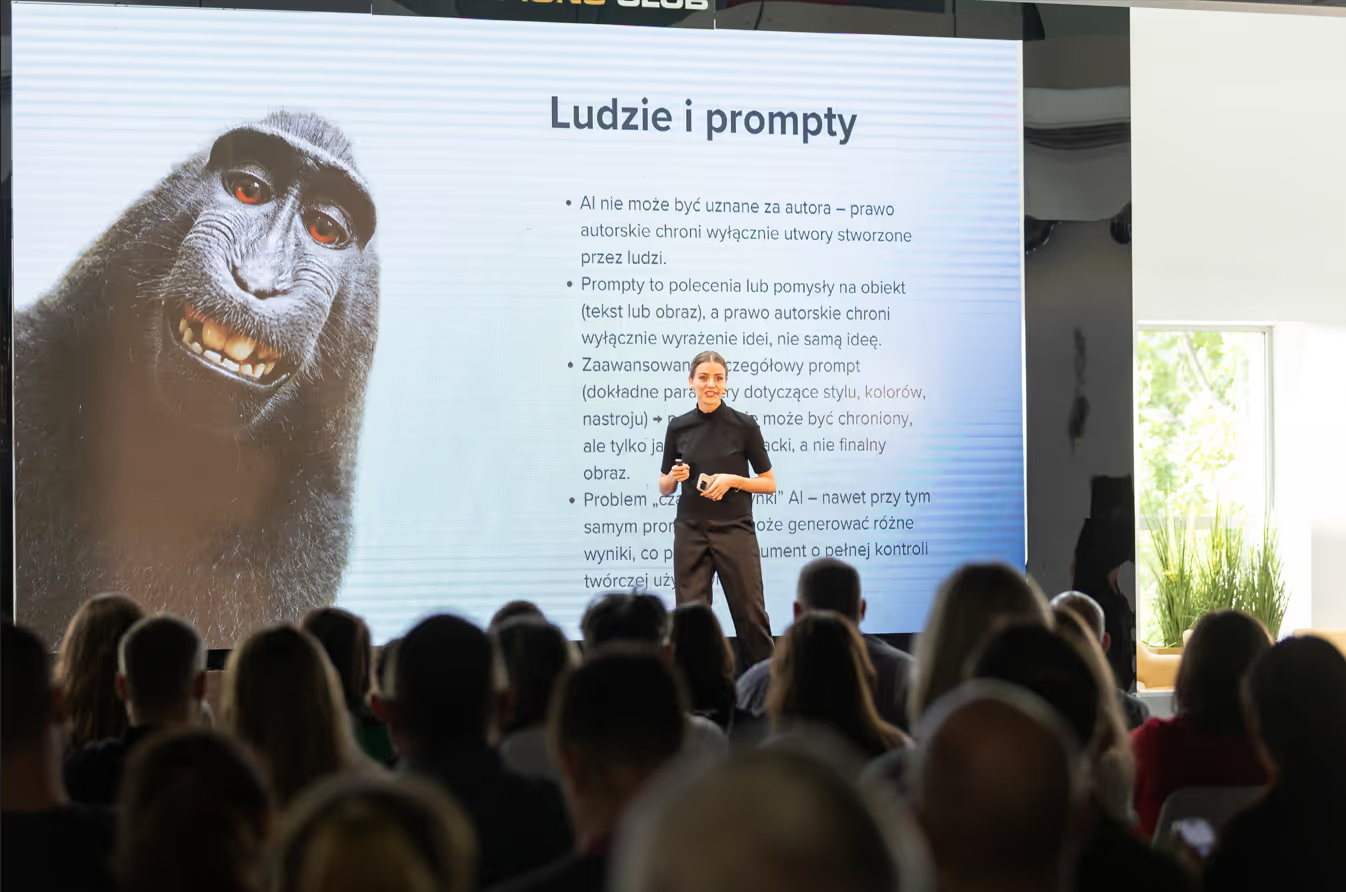June 18, 2025
Artificial Intelligence Is Not (Yet?) an Author – Aleksandra Maciejewicz's Speech at AI Creative Fest
No items found.

On June 11, 2025, the second edition of AI Creative Fest – an eventdedicated to the intersection of technology and creativity – took place at theLegia Stadium in Warsaw.
Naturally, we couldn't miss it – one of the speakers was our lawyer,Aleksandra Maciejewicz, who gave a presentation titled:
“Artificial Intelligence as a Co-Author: Legal Implications of Co-Creation withMachines.”
The topic couldn’t be more timely. More and more agencies, software houses,and marketing departments are using generative tools – from ChatGPT toMidjourney. However, practical use does not exempt us from legalconsiderations, especially in the area of copyright law. Aleksandra showedparticipants what this means in practice – and how to minimize legal risks.
Key takeaways from the presentation:
· Under Polish and EU law, AI cannot be recognized as anauthor – only humans are entitled to copyright protection.
· A prompt, as an expression of an idea, may (rarely) beprotected – but the AI-generated output itself is not.
· It is crucial to document human input and oversightthroughout the creative process (e.g., iterative prompting, selection,post-production).
· The absence of protection does not mean the absence ofresponsibility – AI may infringe on third-party rights, even unintentionally.
What do we advise our clients?
For creative companies (agencies, animation studios, production houses,etc.), this means the need to implement clear internal procedures:
– Clear marking and documentation of human contributions
– Appropriate contractual clauses with clients and subcontractors
– Internal policies on the use of AI tools
– Alternative means of protection (e.g., trade secrets, trademark registration)
This is not just a legal issue – it's a matter of business andcommunication responsibility towards clients and partners.
Interested in learning more?
Contact us at: aleksandra.maciejewicz@lawmore.pl
We’ll be happy to support you in reviewing policies and contracts, and indeveloping safe and effective practices for creative teams.

